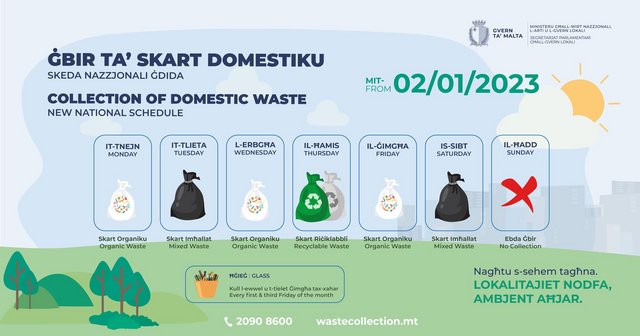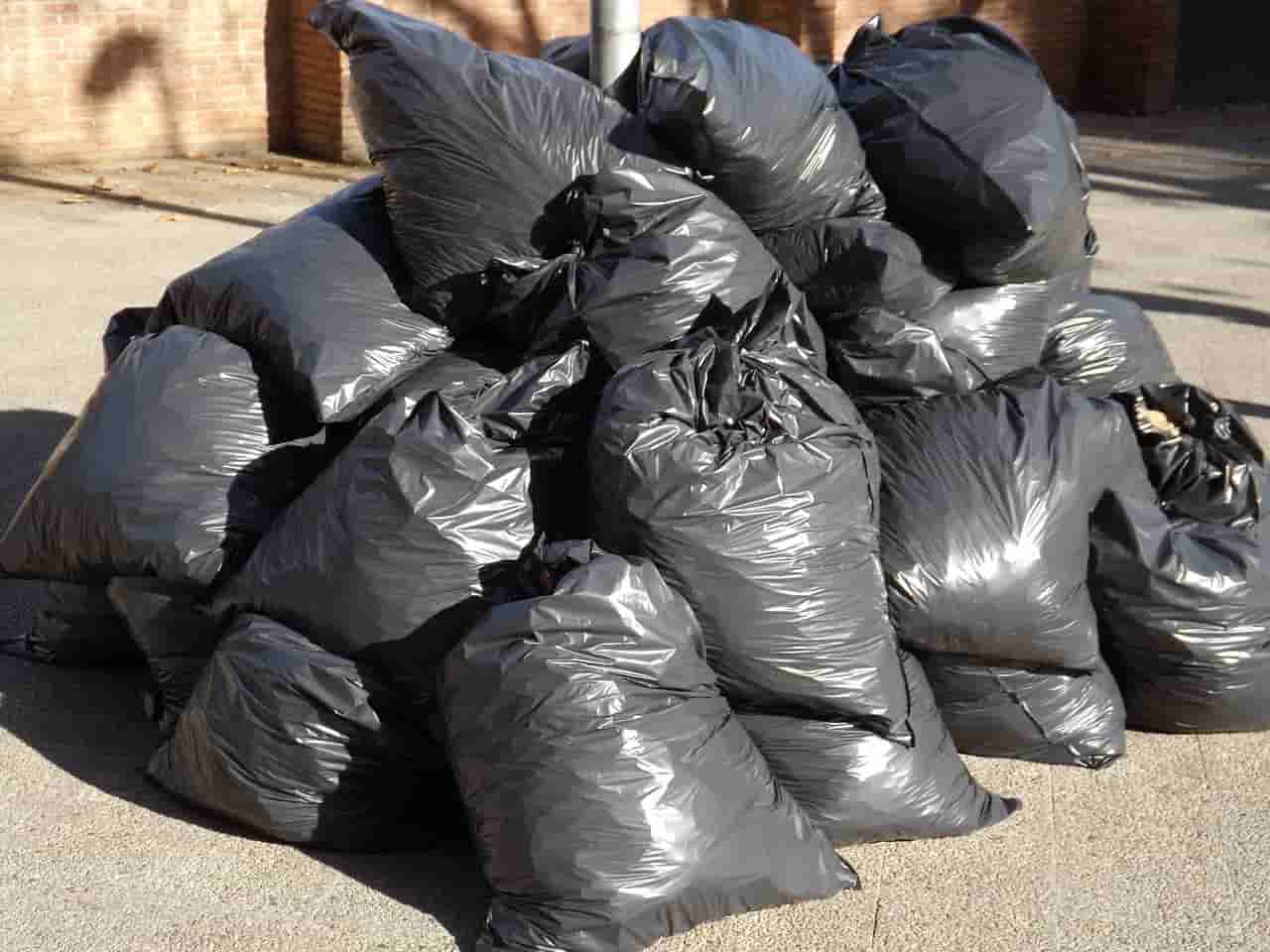Waste Collection in Malta: Keeping Our Islands Clean and Green
Malta, a small archipelago located in the heart of the Mediterranean Sea. Renowned for its stunning natural beauty, rich history and vibrant culture. Yet, the issue of waste management is a significant challenge faced by the Maltese community. The result of a growing population and an increase in tourism. Proper waste collection and disposal have become critical. To preserving Malta’s picturesque landscapes and protecting the environment. In this article, we will explore the waste collection system in Malta. The efforts made to keep the islands clean and green.
The Challenge of Waste Management
As the population of Malta continues to grow. So does the amount of waste generated by its residents and visitors. Waste management has become a pressing issue. To a large extent due to the limited availability of land for landfill sites. Besides, the potential risk of pollution to the surrounding seas and marine life. If not managed, waste can harm the ecosystem. Spoil the beauty of the islands and impact the well-being of its inhabitants.
The Maltese Government published a Waste Management Plan. To address the need for better waste management. This plan sets several targets. Which both Malta and Gozo should reach to reduce waste generation. The plan sets mandatory waste separation targets to promote recycling.
From 14 April 2023 waste separation became mandatory. There is a legal obligation on everyone to dispose of waste in appropriate bins. Waste separation leads to recycling of materials. Which in turn helps us have a cleaner environment.
Domestic waste is to be separated into 3 different categories. The organic, recyclable or non-recyclable waste. Household items to be disposed of in the recycling green or grey bag are paper, tin and plastic items. Such as cardboard, food cans, plastic food containers, detergent boxes among others. In organic waste bags throw cooked or raw food, fruit and vegetable peels, soiled napkins. Throw away the remaining trash in black garbage bags. Such as dirty food wrappers, dirty takeaway boxes, sanitary items, dust, animal waste.
You can buy garbage bags at all supermarkets and grocery stores. Garbage bags come in small, medium and large bags for black and recycled waste. Organic bags come in one size.
Collection of glass bottles and jars takes place every first and third Friday of the month. Place these items outside the house in a reusable container.
Recycle plastic bottles, beverage cans and several glass bottles at reverse vending machines. These machines are distributed across several localities and major supermarkets. A deposit of 10 cents is charged when you buy single use beverage containers. On the container’s return, you will receive the deposit in a form of voucher. Use the vouchers at supermarkets and grocery stores. BCRS Malta Ltd operates this waste recycling system. The company then sells the material collected to industrial recycling plants.
GreenPak promotes the recycling of batteries. Dispose of batteries at collection stations. Located at major supermarkets, bank branches, city councils and schools. Recycling of used batteries takes place in modern recycling plants. As a result harmful components do not contaminate the environment.
Throw away hazardous waste such as medicines at pharmacies.
Disposal of hazardous waste takes place at the civic amenity site. Such waste includes chemicals, paint and lubricating oil. Solvents, batteries, spent light bulbs and neon tubes.

Domestic Waste Collection System in Malta
Malta has developed a comprehensive waste collection system. To tackle the waste management challenge. That involves various methods to ensure proper disposal and recycling of waste. This system was set in the National Plan on Waste Management. Which is overseen by the WasteServ Malta Ltd. A government-owned entity responsible for waste management on the islands.
Domestic waste collection in Malta takes place in one of the following ways:
Door-to-Door Collection
The door-to-door waste collection system is an integral part of Malta’s waste management strategy. This system involves regular collection of different types of waste. Collection takes place from households and commercial establishments.
On 2 January 2023, the new waste collection schedule was rolled out. This adjusted previous anomalies in garbage collection. Now, waste collection is the same in all localities. The new national schedule establishes which bags are to be taken out for collection on which day. Organic waste is collected on Monday, Wednesday and Friday. Recyclable waste, the green or grey bag, is collected on Thursday. Non-recyclable waste, known as the black bag, is collected on Tuesday and Saturday. Rubbish collection takes place everyday except on Sunday. Its collection is free of charge.
Bring-In Sites
Besides door-to-door collection, Malta has established bring-in sites. Greenpak and GreenMT manage these sites. Located in most localities across the islands. To encourage proper disposal and prevent illegal dumping. Residents can dispose of paper, glass, plastic and metals. Throw away items into the different colored containers. White is for paper, blue for plastic, black for metal and brown for glass.
Civic Amenity Sites
Malta has set up civic amenity sites for bulky waste and hazardous materials. Such as electrical items, chemicals, paint and construction debris. These sites allow residents to dispose of household waste in a responsible manner. Preventing it from ending up in landfills or causing environmental harm.
Civic amenity sites collect only household waste. Public entry into the site is only permitted with a vehicle. These sites are open daily from 07:30am to 17:30pm.
Local councils in Malta and Gozo offer bulky waste collection services. Bulky waste is any waste that is too big for normal household waste. Such as furniture, white goods and electronics. This service is free of charge to private households only. Individuals can contact the local council for a collection appointment.
When you buy a new electrical or electronic device from any store. The latter has a legal obligation to take back your old device at no extra charge.
Recycling Initiatives
Promoting recycling is a key component of Malta’s waste management efforts. WasteServ Malta Ltd encourages citizens to recycle materials. Like paper, plastic, glass and metal. Most public places have recycling bins. To make it easier for people to take part in recycling initiatives.
WasteServ Malta Ltd also operates a RoadShow Truck to encourage recycling. This truck visits all localities at least once a month. You can dispose of clothes, light bulbs, pots and pans. Paint, small electronic devices and much more. The Roadshow Truck has separate compartments to avoid contamination of recyclable waste.
Small electrical and electronic devices can be disposed of in WEEE Trolleys. Such as laptops, chargers, electric tools etc. You need to apply for a WEEE Trolley online. All items disposed of in the WEEE Trolley are taken to a recycling facility.
Waste-to-Energy Plants
Malta has invested in waste-to-energy plants. To reduce the amount of waste that goes to landfills. These facilities incinerate non-recyclable waste. Generating energy in the process. This can help cut the volume of waste. Though the incineration process is to be managed in a cautious manner. To avoid air pollution and other environmental impacts.
Reuse Centres
Take used items which are still in good condition to the reuse centres. Located in WasteServ’s civic amenity sites of Ħal Far, Luqa, Mrieħel and Tal-Kus in Xewkija, Gozo. Reuse centres are open from Monday to Sunday from 07:30am to 17:30pm.
Reuse centres collect items such as wood, loose furniture and books. Ceramics, toys, textiles and much more. Baby and medical equipment are not accepted.

Commercial Waste Collection System in Malta
The new waste collection schedule does not affect commercial entities. Those who have agreements with private waste collectors. Their schedule remains the same as agreed with the private collector.
It is mandatory that all importers register with a recycling company. Importers are charged a fee for the packaging material they import.
Environmental services businesses have set up shop in Malta. These cater for industrial waste collection. Services include industrial skips, hazardous waste collection with all the necessary certification. These businesses have built a waste management infrastructure. To support recycling, collection and treatment of disposed waste. Waste facilities for composting, energy and material recovery.
Fines
From April to October 2023 the authorities are working on an educational campaign. To educate the public on mandatory separation of waste. ERA officials are undertaking continuous inspections in all localities. To enable the public to get accustomed to the new waste separation regulations. Authorities will issue warnings to people caught disposing of inappropriate waste. Fines will be issued from 14 October 2023. The fine for businesses amounts to €75 and households €25. Fines will double for the 2nd offense.
Government Investment
The Maltese Government has invested in new waste collection infrastructure. Such as modern recycling plants and waste treatment plants. The launch of an educational campaign to sort rubbish at source gave a boost to recycling. Recycling bins makes it convenient for people to dispose of their waste in a responsible manner.
The Government involved local communities and non-governmental organisations to help in waste management. NGOs organise regular clean-ups. These initiatives help to raise awareness on the effect waste has on the environment.
Increased public awareness on waste separation and the importance of recycling. Results in a reduction of waste sent to landfills. Waste separation contributes to a better climate. As recycling waste reduces greenhouse emissions. This leaves a positive impact on the environment.

Challenges and Future Outlook
Despite the efforts made by the Maltese government to improve waste management. Yet, several challenges persist. One major obstacle is changing the mindset of the population towards waste disposal. It requires continuous education and awareness. Campaigns to encourage citizens to adopt responsible waste management practices. Such as reducing, reusing, and recycling.
Furthermore, tackling illegal dumping remains a significant concern. Illegal dumping not only harms the environment. But, it also puts an extra burden on the waste collection system. To combat this issue, stricter enforcement measures and penalties may be necessary.
As we look to the future, the sustainable management of waste will continue to be a top priority for Malta. Implementing innovative technologies and exploring new waste management techniques. Which can further improve the efficiency of the system and cut its impact on the environment.
Waste collection in Malta is an essential aspect of preserving the beauty of the islands. Besides protecting the environment for future generations. Through the diligent efforts of the government and the active participation of citizens. The waste management system in Malta has made significant strides. Towards a greener and cleaner future. By continuing to invest in sustainable waste management practices. Besides fostering a culture of responsible waste disposal. Malta can serve as an inspiring example. For other regions facing similar waste management challenges. Together, we can work towards a cleaner and more sustainable world.
